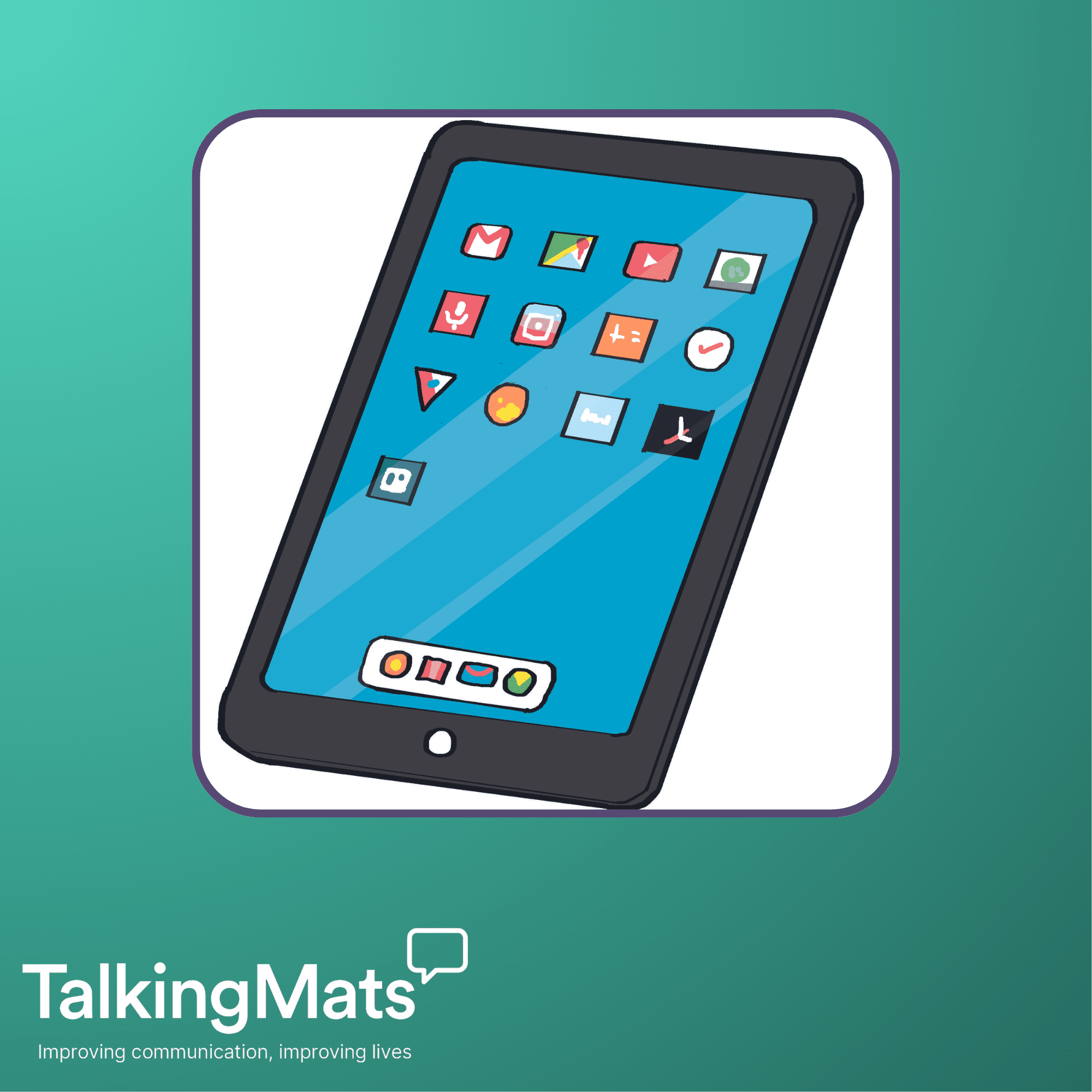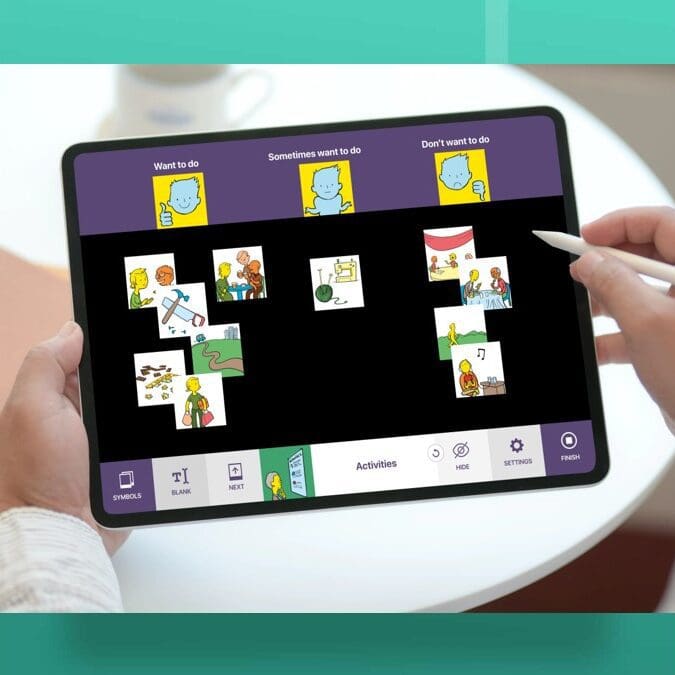Supporting People with Profound & Multiple Disabilities
Find out about the Core and Essential Service Standards for Supporting People with Profound and Multiple Learning Disabilities. and thanks to Joanna Grace for this interesting and important guest blog ,she writes;
Last week I threw used deodorant canisters at an audience of earnest professionals and was cheered for doing so. What was going on?
I run The Sensory Projects an organisation that aims to share the knowledge and creativity required to turn inexpensive items into effective sensory tools for inclusion. In all I do I am working to contribute to a future where people are understood in spite of their differences.
The empty deodorant canisters had been washed, their roller balls removed to enable me to fill them with festive scented balm – some frankincense some myrrh – with balls replaced they make wonderful massage tools enabling me to form a connection through touch and smell with persons of all abilities and to share a sensory conversation around the season.
I lobbed them at my audience to bring to life the new Core and Essential Service Standards for Supporting People with Profound and Multiple Learning Disabilities. That title might not sound exciting and the link with my improvised massage tools might not be immediately apparent but I promise you the link is there and the document is very exciting indeed.
My original dream when I set up The Sensory Projects was to write five sensory stories. That dream was a bit of a fantasy and so I had to pinch myself when it came true. The original five stories are sold to fund the writing of more and there are now twenty available on the website. The stories led to books, of which there are five in print currently and a few more in the pipeline. The stories project led to another project, which led to another, and there are four currently and a fifth due to start next year. Through the projects I have had the chance to do some remarkable things and found myself in situations I never imagined I would be in: I’ve been featured in a book given away in Lush stores globally, I’ve been interviewed on Radio 4, I’ve done a TEDx talk, I’ve even exchanged text messages with the Foo Fighters! If I continued to pinch myself when remarkable things in my life happened I would be black and blue by now.
And yet of all of these wonderful things and the many adventures I have had, by far and away the best thing I have been a part of is the new Core and Essential Service Standards for Supporting People with Profound and Multiple Learning Disabilities.
The new Core and Essential Service Standards for Supporting People with Profound and Multiple Learning Disabilities is a document that describes what best practice care looks like when supporting people with profound and multiple learning disabilities. It is beautifully simply having just 7 standards for what best practice looks like at an organisational level and 6 standards for what it looks like at an individual level. It was written by a team of volunteers over 140 strong over an 18 month period. It represents an enormous work of effort and hope. I am humbled and proud in equal measure to be one of its four lead authors. If adopted by the inspecting agencies it would change the face of what care looks like for individuals with complex disabilities nationwide and influence care provision globally.
Even without being adopted by the inspecting bodies it is having an impact. I encourage all settings to take a look at it. If you are a great setting celebrate that you meet the standards, declare it publicly, display it on your website, tell the world – and help us to create an expectation that this is what care should look like. If you are a middling setting celebrate that you are working towards the standards, use them as a reflective tool to drive up the quality of care that you offer. And if you work in a duff setting….well, I spoke to one woman who worked in a setting where the management were thoroughly uninterested in supporting their residents with profound and multiple learning disabilities. She looked through the document, thumbing the forward by Norman Lamb and the endorsement by NHS England, she gave me a wry smile “I don’t think my boss will know this isn’t legal” she winked, “I’m just going to give it to him!” However the change comes about, we want to see these standards upheld.
Early on in the writing process we had to make a decision: were we going to describe what best practice care looked like now, or what it ought to look like. We went with what it ought to look like. This is an aspirational document. But that is not to say it is unachievable. I cannot emphasise the “ought to” strongly enough. The first standard for individuals is communication, within the explanation for this standard is the following: “Communication should be a collaborative activity, it has to be a two-way exchange; reciprocal and responsive.” That is not asking a lot. It is a shame on our society that such basic standards are aspirational at all. It should already be happening.
We launched the standards at an event called Raising the Bar last year. Raising the Bar II was held this year and looked at how far we had come since the launch. One speaker told the room full of delegates “before you seek to raise the bar you must allow family members to say where the bar is currently” and we did. Families presented about the level of care their loved ones had received and their stories were horrific to hear. The bar is currently set very very low. Standards such as two way communication are aspirational. It is so low that it should be easy to raise. Simply by being aware of what we should be doing, making others aware, and expecting to see positive change we can go some way to improving care. Raising the Bar III is due to be held at Birmingham University next year on the 25th of October.
Most importantly of all we want families and primary carers to know about the standards so that they can use them as an advocacy tool and demand that settings meet them. There is a community of practice hosted on Facebook that networks people working together to see this change come about. Please join us.
So what was the deodorant canisters thing about? Well a two way communication for someone who does not use words can begin at a sensory level. It can be me massaging your hand with a festive scent and watching for your response. To be truly two way I need to share this time with you on multiple occasions as your responses today might be indicative of something other than your opinion of this scent. They could be a pain in your stomach, a tightening of a muscle, a epileptic shudder. To truly know your response, your opinion, to truly make the communication two way I need to repeat, and to give you time, and to tune in to your response and then I need to listen to it and act upon it. If through our conversations you tell me you like one smell and dislike another then this will help me choose from the pile of toiletries you are given for Christmas which you will really enjoy. As I share these simple conversations with you over time I address another of the standards:
Standard two is about health and wellbeing and describes how staff will have an awareness of what good mental health looks like for an individual and how to support it. Smell has a particularly powerful effect on the emotions and fostering an engagement with smell is a good way of supporting someone’s mental health – regardless of their ability, disability or neurodiversity. On my Sensory Engagement for Mental Well Being training day I look at many simple sensory strategies for supporting mental health for people with complex disabilities.
A document like the standards can seem dry and impersonal, throwing things at my audience helped me to bring it to life. My whole working life, and much of my private life – I have worked for inclusion in mainstream education settings, I have taught in a school for children with severe and profound special educational needs and disabilities, I have inspected schools for their provision for children with additional needs and provided consultancy services to schools looking to improve their provision, I have family members with neurodiverse conditions and physical disabilities, I have been a registered foster carer for children with severe and profound special educational needs and disabilities and I have run The Sensory Projects – has been about working to see people be better understood, better included and better appreciated for being themselves. The Standards are the pinnacle of all of this work.
You can download the Standards for free from the PMLD link website: www.PMLDlink.org.uk by following the ‘Resources’ tab, or from my own website www.TheSensoryProjects.co.uk – again follow the Resources tab. Please print them off and share them far and wide, make sure everyone you know who is involved in the lives of people with profound and multiple learning disabilities, or has influence over their lives in anyway, knows about them. Together we will create this change.
I also warmly invite you to join us on the Community of Practice, let us know who you have shared the Standards with, it is great to hear what others are doing.
 Online training login
Online training login 






